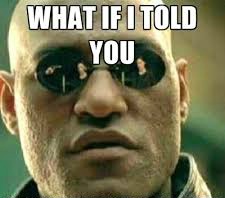 |
Learn English Locally, Apply It Worldwide! Enjoy Regular Practice |
Conditional Type II Sentences
Having studied the first conditional previously, let's look at conditional II sentences and when to use these instead in hypothetical situations (i.e. situations that we imagine).
Conditional forms are used to imagine events in certain conditions. The conditional can be used to speak about real events that always happen (first conditional), imaginary events (second conditional), or imagined past events (third conditional, which we shall cover in a future lesson).
If we finish early, we will go out for lunch. = Conditional I - possible situation
If we had time, we would visit our friends.= Conditional II - imaginary situation
We need to study conditional forms in order to speak about past, present and future situations that depend on other events happening.
|
The second conditional or conditional II or unreal conditional is about something that would be true if something happened in the present. It is often called the "unreal" conditional because it is used for unreal, impossible or improbable situations. This type of conditional provides an imaginary result for a given situation. |
 |
Conditional II is formed by the use of the past simple in the ‘if clause’ followed by a comma and the ‘would’ verb (base form) in the result clause. You can also put the result clause first without using a comma between the clauses.
[If they had more money], [they would buy a new house].
OR
[They would buy a new house] [if they had more money].
NOTE: The verb 'to be', when used in conditional II, is always used as 'were'.
[If he studied more], [he would pass the exam].
[I would lower taxes] [if I were the President].
[They would buy a new house] [if they had more money].
Practice time!
Please do the following exercise. Answer the questions as shown in the model to practise a HYPOTHETICAL condition. (The action will probably not happen, because the person is going to follow the other course of action.)
Model:
A: She isn't going to become a teacher next year.
B: What would happen if she became a teacher next year?
A: ............... [work very hard]
A: If she became a teacher next year, she would work very hard.
English Corner Weekly E-zine
Packed with knowledge, published on Tuesdays.
Get yours here!
Our Archives:
Our lessons in the names and sounds of letters, short & long vowel sounds, CVCs, CCVCs, CVCCs, sight words, vowel and consonant contrasts, etc.
Our lessons will help increase your vocabulary, word recognition, find meaning in context, skills for TOEFL tests and other games, for fun.
Here we shall build some lessons to help you improve your writing skills.
Lots of lessons: cause & effect, comparisons, linking signals, relative clauses, presenting information, expressing emotions and grammar games, of course. We had more lessons on: intensifying adverbs and phrasal verbs, expressing various concepts such as addition, exception, restriction and ambiguity. Lately we started some exercises: likes/dislikes, frequency adverbs (twice), verb tenses, etc.
Learn how to build a website, by using the SBI! system - start from the basics, developing a site concept and a niche, supply and demand, learn about profitability and monetization, payment processing, register domain, website structure and content as a pyramid. Also learn about the tools I'm using to build this website. We also covered how to build traffic, working with search engines, building a good system of inbound links, using social marketing and blogs with the SBI system, how to use Socialize It and Form Build It, how to publish an e-zine and how to build a social network in your niche.
We looked at a few games by now: Countable & uncountable nouns, Free Rice, Name That Thing, Spell It, Spelloween, the Phrasal Verbs Game, Preposition Desert, The Sentence Game, Word Confusion, Word Wangling, Buzzing Bees, and The Verb Viper Game.
Be prepared to play and learn more pretty soon.
